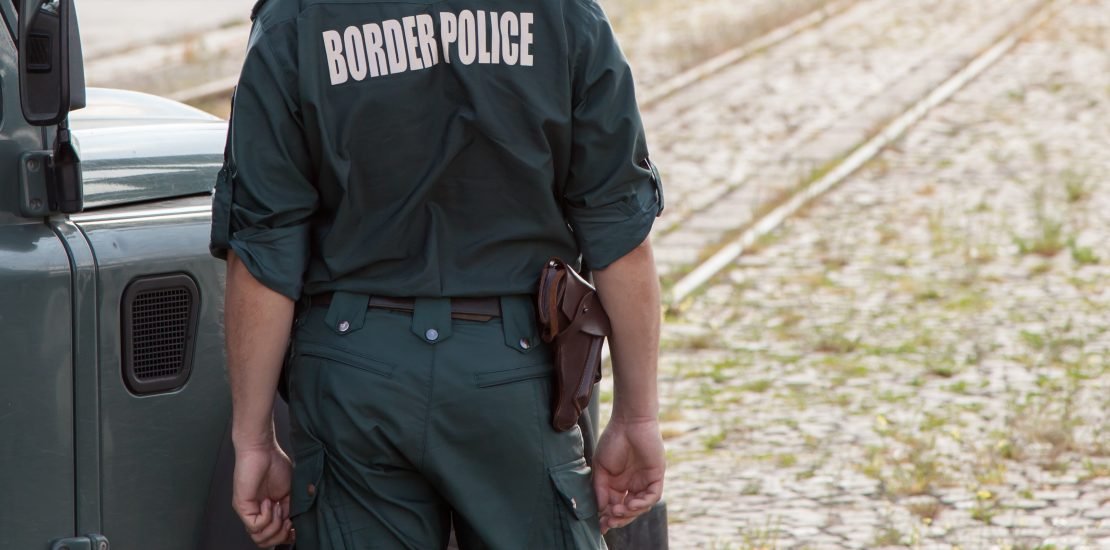- April 9, 2022
- Posted by: Administrator
- Category: News

[ad_1]
New Mexico just became the 18th state to legalize recreational pot use for adults, but that makes no difference to the U.S. Customs and Border Protection, which issued a warning this week for anyone passing through the Land of Enchantment: it is still illegal to us.
“Border Patrol agents have drug enforcement authority. Marijuana is still a prohibited drug under Schedule 1 of The United States Controlled Substances Act. Therefore, U.S. Border Patrol agents will continue to take appropriate enforcement action against those who are encountered in possession of marijuana anywhere in the United States,” the agency said in a media release, as quoted by Border Report.
Recreational pot sales launched in New Mexico late last week, following dozens of other states and cities that have enacted their own measures to end their prohibition on cannabis over the last decade.
But the admonition from the Border Patrol is a reminder that customers should still tread carefully if they happen to be carrying in the state. As Border Report noted, “Border Patrol operates highway checkpoints in New Mexico on Interstate 10 near Deming, north of Las Cruces, south of Alamogordo and north of Columbus, among others,” and agents who are situated there “primarily check for immigration documents of people traveling to the interior of the United States, but they also make drug seizures under Title 21 authority of the U.S. Code.”
And, as in other states, New Mexico hailed the new policy as an economic driver for state and local economies.
“As we look to rebound from the economic downturn caused by the pandemic, entrepreneurs will benefit from this great opportunity to create lucrative new enterprises, the state and local governments will benefit from the added revenue and, importantly, workers will benefit from the chance to land new types of jobs and build careers,” New Mexico Governor Michelle Lujan Grisham said in a statement after signing the legalization bill into law last year.
“This legislation is a major, major step forward for our state,” Lujan Grisham, a Democrat, added. “Legalized adult-use cannabis is going to change the way we think about New Mexico for the better — our workforce, our economy, our future. We’re ready to break new ground. We’re ready to invest in ourselves and the limitless potential of New Mexicans. And we’re ready to get to work in making this industry a successful one.”
But the warning issued by the Border Patrol captures what has been the defining tension of this era of legalization, with the new state and local cannabis laws invariably running afoul of the federal government’s ban on cannabis.
It is why Congress is facing mounting pressure to finally change that. The U.S. House of Representatives last week passed the Marijuana Opportunity, Reinvestment, and Expungement (MORE) Act, which would legalize cannabis on the federal level.
The legislation now heads to the Senate, where leaders say they intend to produce their own legalization proposal by month’s end.
At a press conference on Tuesday, Senate Majority Leader Chuck Schumer said he is consulting Republicans in the chamber to see what they would like added to the cannabis bill.
The MORE Act passed the Democratic-controlled House largely on a party-line vote.
For Schumer, getting something done will represent the fulfillment of a promise his party made last year after they were swept into power. In an interview last spring, Schumer said that “at some point we’re going to move forward [on legalization], period.”
“In 2018, I was the first member of the Democratic leadership to come out in support of ending the federal prohibition. I’m sure you ask, ‘Well what changed?’ Well, my thinking evolved. When a few of the early states — Oregon and Colorado — wanted to legalize, all the opponents talked about the parade of horribles: Crime would go up. Drug use would go up. Everything bad would happen,” Schumer said at the time.
“The legalization of states worked out remarkably well. They were a great success. The parade of horribles never came about, and people got more freedom. And people in those states seem very happy.”
[ad_2]
Source link
